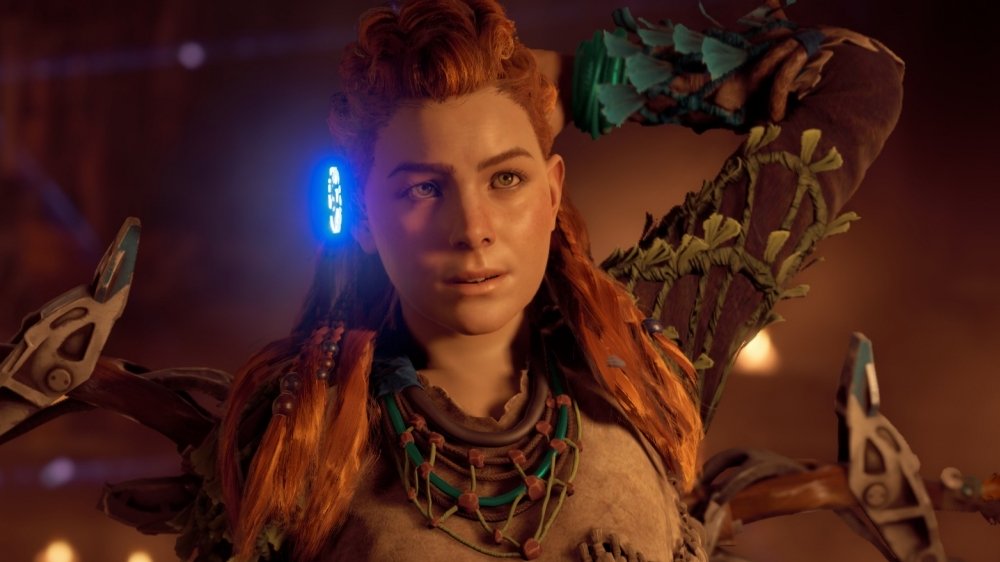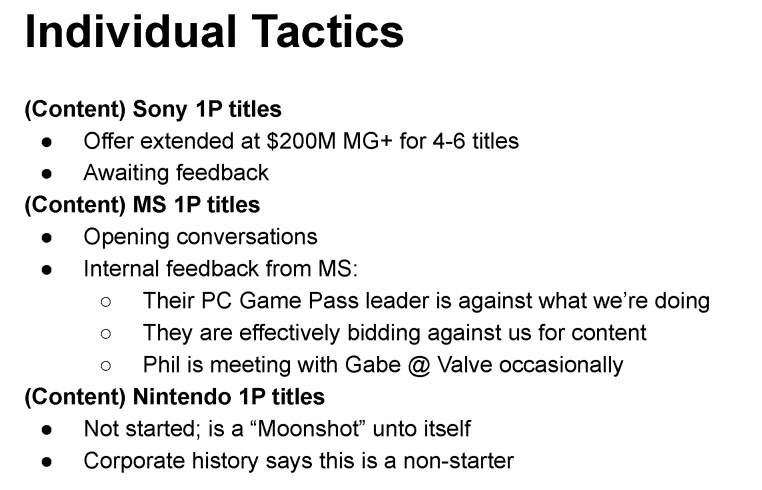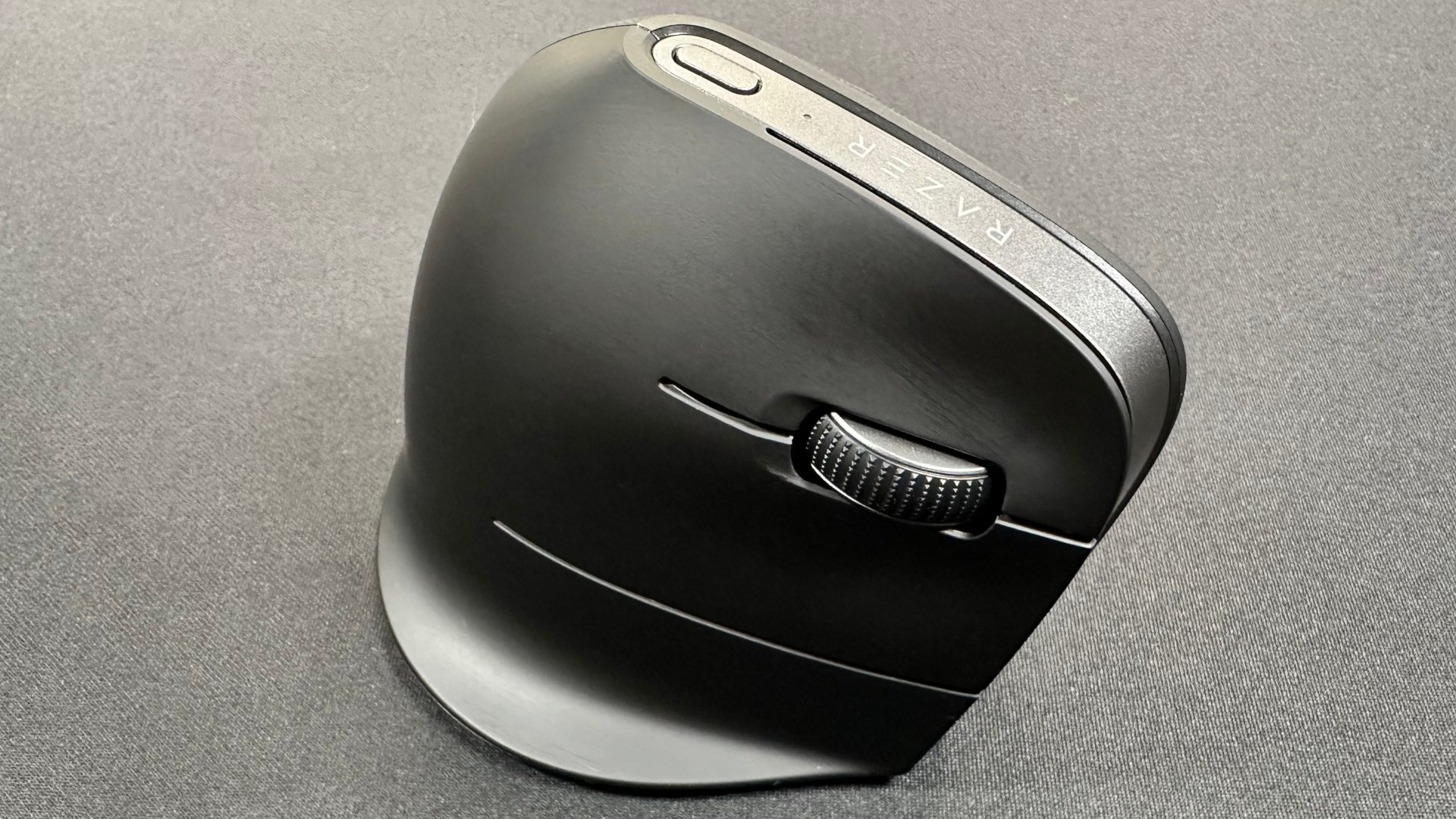Epic apparently offered Sony $200M for first-party PlayStation exclusives
Microsoft has been less receptive to the Epic Games Store, and Nintendo was seemingly a non-starter.

The Epic v Apple trial keeps delivering interesting information, particularly about deals and spending related to the Epic Games Store. We've learned, for example, that in 2019 and 2020 Epic promised about $1 billion in advances for exclusives, including $115 million for Borderlands 3. A new trial exhibit—which was apparently released accidentally—shows that Epic offered Sony a $200 million advance to get first-party PlayStation games on the Epic Games Store exclusively.
We don't know what kind of deal Epic and Sony may have arrived at, as the document in question was made before any handshake. It says that Epic offered Sony "$200M MG+ for 4-6 titles" and was awaiting Sony's response. "MG" surely stands for "minimum guarantee," which is how Epic refers to these exclusivity deals: It's the minimum revenue Epic guarantees a game publisher will make with an Epic Games Store exclusive, whether or not their game actually sells enough to cover it.
The wording is somewhat ambiguous: Is it $200M per game, or $200M for all 4-6 games? It depends on the specific games, surely, and so far only two Sony-published games have released exclusively on the Epic Store: ReadySet Heroes and Predator: Hunting Grounds. One hopes Epic didn't put down $200M for Predator: Hunting Grounds, and $200M for both wouldn't make sense, either. Either a totally different deal was struck in the end, or those two games are part of a bigger batch of Sony-published exclusives coming to the Epic Games Store. (ReadySet Heroes remains exclusive, by the way, while Predator: Hunting Grounds has since released on Steam following a year of exclusivity.)
Other Sony-published games have released on the Epic Games Store, just not exclusively. Horizon Zero Dawn launched on the Epic Games Store and Steam simultaneously, and the upcoming PC release of Days Gone will do the same. If I had to guess, the original $200M pitch targeted those games, not ReadySet Heroes, but it's just a guess.
There's still no sign that Sony's flagship games, such as the Uncharted and God of War games, are coming to PC at all. An exclusive Epic Games Store release of Bloodborne would certainly be a win for Epic, and would start to make the $200 million figure more sensible, but we haven't heard anything on that front, I'm afraid.

Epic and Sony don't always see eye-to-eye (they had a bit of an argument over crossplay), but they are pretty tight. The PlayStation company even owns a bit of Epic: Sony put $200 million into the business recently, and invested $250 million last year. Sony's clearly got the ear of Epic CEO and controlling shareholder Tim Sweeney, and vice versa.
As for Microsoft, Epic's initial talks apparently turned up resistance. The document notes that the head of Xbox Game Pass for PC didn't like what Epic was up to with its store, and that Microsoft viewed Epic as a company it was competing with to sign games. It also mentions that Xbox head Phil Spencer and Valve boss Gabe Newell were having meetings at the time.
Keep up to date with the most important stories and the best deals, as picked by the PC Gamer team.
No surprise there: Microsoft quite openly backed Valve when it started putting its games on Steam again, including the Halo Master Chief Collection.
As for getting Nintendo games on the Epic Games Store, there may not even have been an attempt. The document describes the idea as a "moonshot" and "non-starter." Sounds about right.
This document snippet was retrieved from the Box folder where Epic and Apple's attorneys have been uploading exhibits. It was deleted after being uploaded, but Resetera poster Raigor grabbed it (they've grabbed other now-deleted documents from the folder). I didn't peep the folder in time to see the document myself, but surprising as it may seem, such a mistake has become expected during the first week of the Epic v Apple trial. On day one, Apple uploaded a ton of documents that it didn't mean to, which is how we learned about some of Epic's other dealings.
I've contacted Epic, and will update this story if it provides more context or denies that it made such an offer to Sony. I'm confident the snippet is real because of its relative mundanity—compared to, say, the email in which Sweeney apologizes to Ubisoft—and what I know about Epic's deals.
One point of clarification: As I mentioned, when Epic 'buys' an exclusivity deal, it's really guaranteeing the game's publisher a minimum amount of revenue. If the minimum guarantee is $200 million, Epic can break even on the deal if it makes that $200 million back in sales of the game, which is called recoupment. During recoupment, Epic may be taking 100% of the revenue. I haven't seen that spelled out anywhere, but it wouldn't be an uncommon deal. (See how game publishing deals work for context.) Once Epic recouped the advance, the normal Epic Games Store 12/88 split would likely kick in.
The breakdown of the Borderlands deal, however, revealed that only a portion of these exclusivity deals counts as recoupable. Along with an $80 million minimum guarantee for Borderlands 3 (which Epic easily recouped), Epic paid $15 million in marketing and a $20 million non-recoupable fee, meaning Epic had to make that money back through the normal revenue split. The point is that any Epic Games Store exclusivity deal we hear about may include stipulations we aren't aware of, unless we get an itemized receipt like we did with Borderlands 3.
In related news, I've written a breakdown of what the Epic v Apple trial is all about, because there is a trial going on, not just a bunch of interesting documents accidentally being uploaded to a Box folder by attorneys.

Tyler grew up in Silicon Valley during the '80s and '90s, playing games like Zork and Arkanoid on early PCs. He was later captivated by Myst, SimCity, Civilization, Command & Conquer, all the shooters they call "boomer shooters" now, and PS1 classic Bushido Blade (that's right: he had Bleem!). Tyler joined PC Gamer in 2011, and today he's focused on the site's news coverage. His hobbies include amateur boxing and adding to his 1,200-plus hours in Rocket League.

